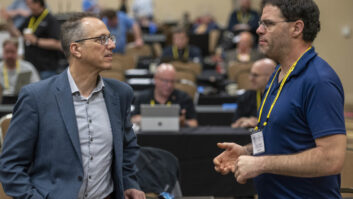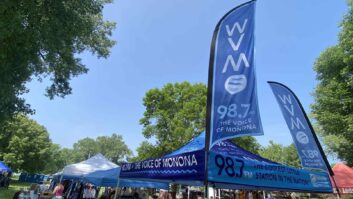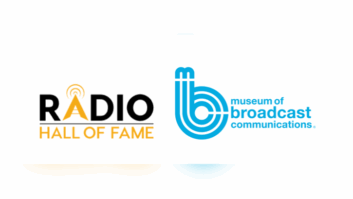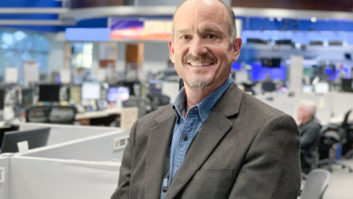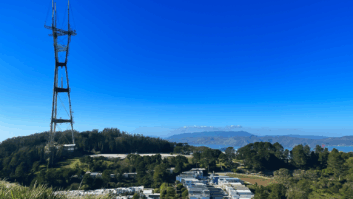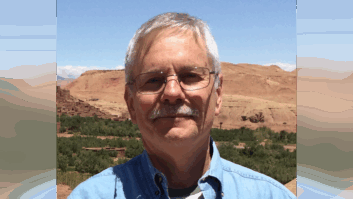The Minority Media and Telecommunications Council, a group that seeks to promote “equal opportunity and civil rights in mass media and telecommunications,” submitted a petition for rulemaking this year to the Federal Communications Commission. Its “Radio Rescue Petition” included 17 calls for action to delete “outdated and ineffective engineering rules.”
The petition asked the FCC to establish an AM transition federal advisory committee to make recommendations about the use of TV Channels 5 and 6; ease AM nighttime coverage restrictions; modify principal community coverage rules; replace the minimum efficiency standards for AMs; allow FM applicants to specify Class C, C0, C1, C2 and C3 facilities in Zone I and IA; affirm FCC support of the repeal of third-adjacent spacing rules; limit translator applications; create a local “L” class of LPFM stations that would be entitled to primary service status after having operated for two years; relax the main studio rule; extend the three-year period for new station CPs; explore the feasibility of a new radio agreement with Cuba; and other changes.
Here are two additional recommendations of note:
15. The commission should conduct tutorials on radio engineering rules at headquarters and annual conferences
This proposal would benefit the commission and the radio industry, especially small stations and new entrants, by providing an opportunity for the commission to explain complex radio regulations for the purpose of promoting compliance and by reducing regulatory burdens on small and minority-owned stations that currently operate as a barrier into the industry.
The commission’s media ownership rules and technical radiofrequency rules have gradually evolved over many decades and, as a result, have become increasingly complex over time.
Due to this complexity, it is extremely difficult for small and local radio broadcasters to fully understand and comply with the existing radio regulatory regime. Furthermore, unlike the largest broadcasters, which can easily disperse the cost of obtaining the necessary regulatory expertise over several stations and thereby take full advantage of the commission’s radio rules, smaller broadcasters must expend substantially more resources per station to remain abreast of, and in compliance with, the radio rules. This serves as a further competitive disadvantage to small radio broadcasters and also creates substantial barriers for new entrants to the radio broadcast industry. The net result of the complexity of the current radio regulatory framework is to reduce the number of independent voices available to the listening public and reduce diversity of radio station ownership.
To help enable small businesses and nonprofits to compete in the new regulatory environment, the commission should conduct tutorials on the radio engineering rules at the commission’s headquarters and at the annual conferences of organizations that represent the interests of broadcasters, and in particular diverse broadcasters, such as the annual conferences of the National Association of Black Owned Broadcasters … [and] the Access to Capital and Telecom Policy Conference, held annually by the Minority Media and Telecommunications Council. …
Broad public dissemination and understanding of the existing radio rules and any new rules adopted pursuant to this Petition are necessary for the proposals to achieve their maximum effectiveness in benefiting small businesses and diverse owners.
This proposal is consistent with the commission’s existing practice of providing outreach to the public by holding workshops and tutorials at the commission’s Washington, D.C., headquarters, as well as at other locations around the country.
Moreover, such outreach is consistent with President Obama’s directive that the federal government during his administration will “disclose information rapidly in forms that the public can readily find and use” and will use “innovative tools, methods and systems to cooperate… with nonprofit organizations, businesses and individuals in the private sector.” …
16. The commission should create a broadcast public engineer position to assist small business and nonprofits with routine engineering matters
This proposal would increase diversity within the broadcast industry by providing a valuable tool for small businesses and nonprofits to help navigate the commission’s complex regulatory system, which would allow increased participation of these entities in broadcasting.
As the radio industry grew so too did the complexity of the commission’s regulatory system. Small broadcasters do not have the same resources that larger stations do, and as a result they often struggle to maintain the cost of compliance with these complicated rules. The effect of this system is the creation of entry barriers for small businesses and nonprofits in the broadcast industry.
The commission should create a new staff resource, a position titled Broadcast Public Engineer, to assist small businesses and nonprofits with routine engineering matters.
The Broadcast Public Engineer should act as the commission’s broadcast ombudsman by conducting public outreach to develop proposals that would streamline and clarify certain FCC applications and filing procedures, thereby benefiting small businesses and nonprofits as well as the entire broadcast industry.
The Broadcast Public Engineer should specifically be tasked with the following activities:
- • Preparing routine technical exhibits for small businesses and nonprofits, to the extent that it can be done using available software products without field testing;
- • Administering an engineering assistance hotline to assist small businesses and nonprofits to complete the engineering portions of routine applications.
- • Reviewing the FCC Forms and corresponding instructions to recommend modifications or additions for the purpose of clarifying and simplifying completion of the engineering portion of these forms;
- • Educating small businesses and nonprofits about the FCC’s current radio rules and any changes to them;
- • Developing user guides and brochures providing explanations regarding how to complete the engineering portions of FCC applications that are more detailed than the instructions to the forms; and
- • Reviewing the FCC’s CDBS database to recommend ways to make the technical information memorialized in the database more easily accessible and comprehensible to the public.
Furthermore, the Broadcast Public Engineer could work with the Media Bureau’s engineering staff to identify frequently made engineering errors on broadcast applications and, through public outreach, reduce the incidence of such errors going forward.
The Commission’s Broadcast Public Engineer could be part of the Office of Communications and Business Opportunities. The OCBO “develops, coordinates, evaluates, and recommends to the commission, policies, programs and practices that promote participation by small entities, women and minorities in the communications industry.” The Broadcast Public Engineer’s responsibilities would be consistent with this mandate.
The addition of the Broadcast Public Engineer position to the other commission resources for the public would ultimately provide significant efficiencies to the commission by reducing the number of inadequately and inaccurately completed applications filed. Accordingly, the position of Broadcast Public Engineer would not only support the public interest by furthering the mission of the OCBO to remove barriers to participation by small entities, women and minorities, but it may also improve the commission’s processing of broadcast applications generally.
This proposal is also consistent with President Obama’s stated objective of making federal agencies more open and transparent.
The full petition is posted at the organization’s Web site atwww.mmtconline.org

